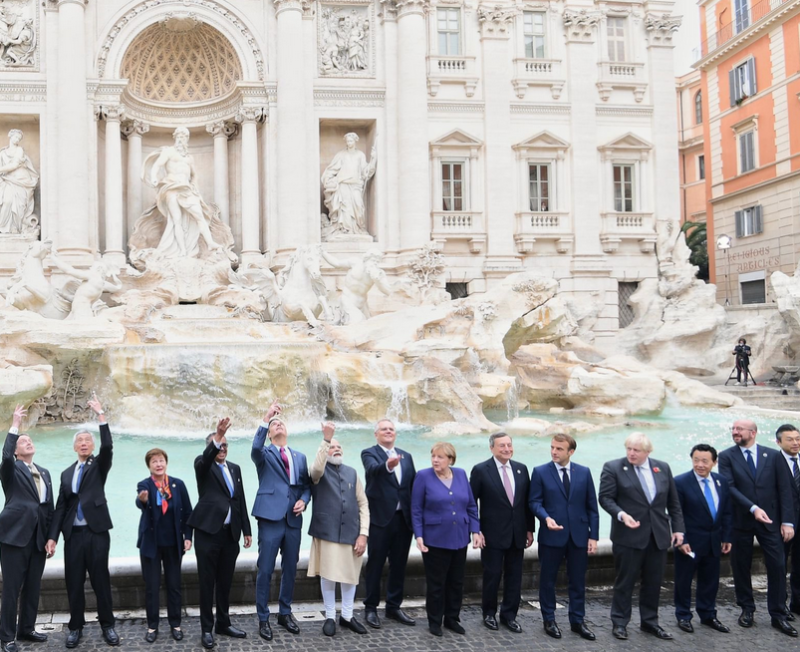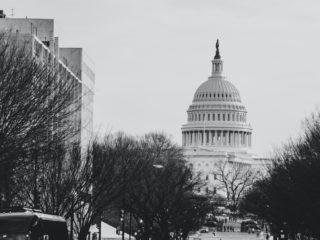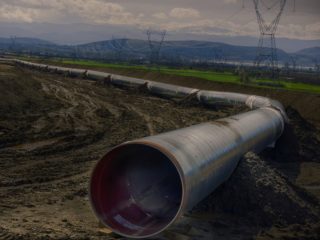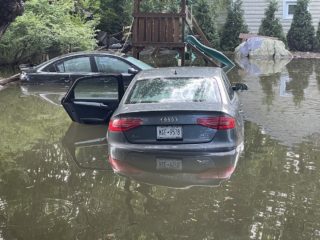As I watched the latest coverage of the COP26 climate summit, that unsettled feeling I’ve had since the conference began morphed into something harder to pinpoint — Frustration? Despair? Panic? All three?
The news camera panned across the multitude of talking heads — some recognizable (there’s Obama! there’s Merkel!) — before cutting to the bustling activity in a cavernous conference center that has been carved into hundreds of cell-like information booths, all sporting helpful signs to direct attendees: “Glaciers and Snow;” “Ice Sheets and Sea-Level Rise;” “Permafrost.” It all has the feel of an impressive high school science fair.
Hence my frustration-despair-panic combo: If the best that the leaders of humanity can do at COP26 is talk (or “blah, blah, blah,” as Greta Thunberg, so eloquently puts it) without producing meaningful action, then yes, there’s a sense of doom that enshrouds me and so many others.
Optics Matter
Perhaps I’m not being fair. To be sure, many, if not most of our world leaders are desperate to find a solution for this planetary crisis, but the optics of a dithering group of leaders is damning.
And optics matter because we look to our leaders for well, leadership. That means decisive action during a crisis. This is war and the planet needs generals with a plan, not politicians mumbling about how to save the planet.
COP26’s Greenwashed Tint
Even if you’re inclined to dismiss the optics, it’s hard to ignore the equivocating and shell game antics. There’s a greenwashed hue that permeates so much of this conference. Here’s a small sampling of how COP26 and its leadership have fallen short on substance so far.
Show Us the Money
First up is the foot-dragging by wealthy nations in assisting poorer countries with climate adaptation and decarbonization measures. Twelve years ago at COP15 in Copenhagen, these nations pledged $100 billion by 2020, but that promise has not been met. The revised estimate for the delivery of these much-needed funds is 2023, but the plan is lacking in details. I’m not optimistic.
Big Oil Remains a Big Influence
Guess who has the most delegates of any country at COP26? The mighty fossil fuel industry.
An analysis by Global Witness finds that over 503 attendees are affiliated with the fossil fuel industry. That’s right, the largest delegation is the one with interests completely counter to the fundamental objectives of decarbonization. It’s therefore difficult to view the summit through an objective lens when the henhouse door is left wide open for the fox to saunter in.
Funny Numbers
Tsk, tsk to China and Russia for playing hooky, say COP26 attendees, but instead of all this finger-pointing, more energy should be focused on the substance of their own commitments.
A hot-off-the-presses analysis by The Washington Post reveals that a number of countries have underreported their greenhouse gas emissions.
The analysis reveals a “giant gap between what nations declare their emissions to be vs. the greenhouse gases they are sending into the atmosphere … big enough to move the needle on how much the Earth will warm.” That COP26 leaders are relying on a “flawed roadmap” for decarbonization is, to put it mildly, a real problem.
Climate Voices Stifled
Back to the optics for a moment. The visual of fossil fuel lobbyists and politicians hob-nobbing, while hundreds of climate activists remain cordoned off from the coveted Blue Zone, is not a good one.
Part of the problem is the steep cost associated with attending, but the other aspect is one of exclusion from attendance, where some have criticized this event as the “most exclusive COP in the past decade.” Climate groups and activists provide a critical watchdog element to the summit and their inability to attend has only compounded the sense that this conference is only reserved for an exclusive few.
More Meaningful Action Needed From Our Leaders
Not all of it has been bad. Some of the more promising outcomes from COP26 include pledges to cut methane emissions and curtail deforestation, but the leadership vacuum is all too apparent to those who are closely following the details.
Murray Worthy of Global Witness gets to the crux of the problem with his call for more action and less rhetoric:
“It’s time for politicians to show they are serious about ending the influence of big polluters over political decision-making and commit to a future where expert and activist voices are given centrestage.”
I agree. There are a few days left to COP26 and I want to have faith that our leaders will come away from the summit with actionable items, but I suspect I’m not alone in feeling that it’ll continue to be a lot of “blah, blah, blah” — sound and fury, signifying nothing.









